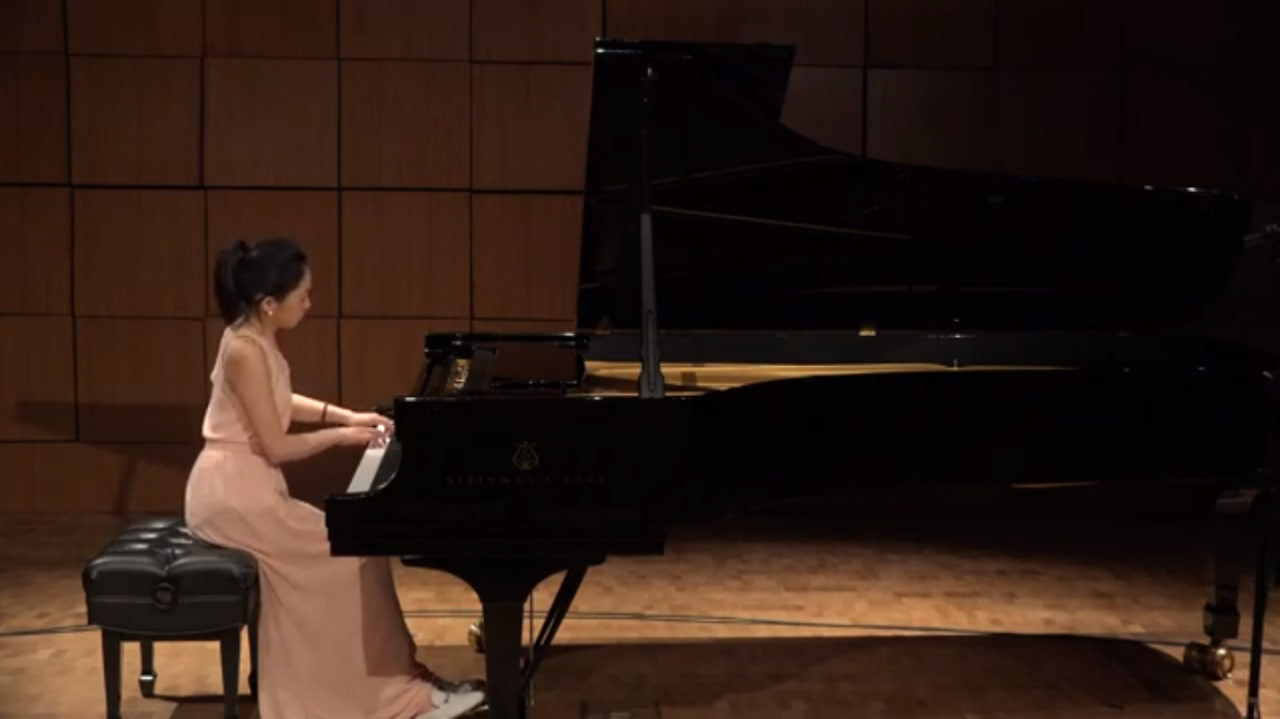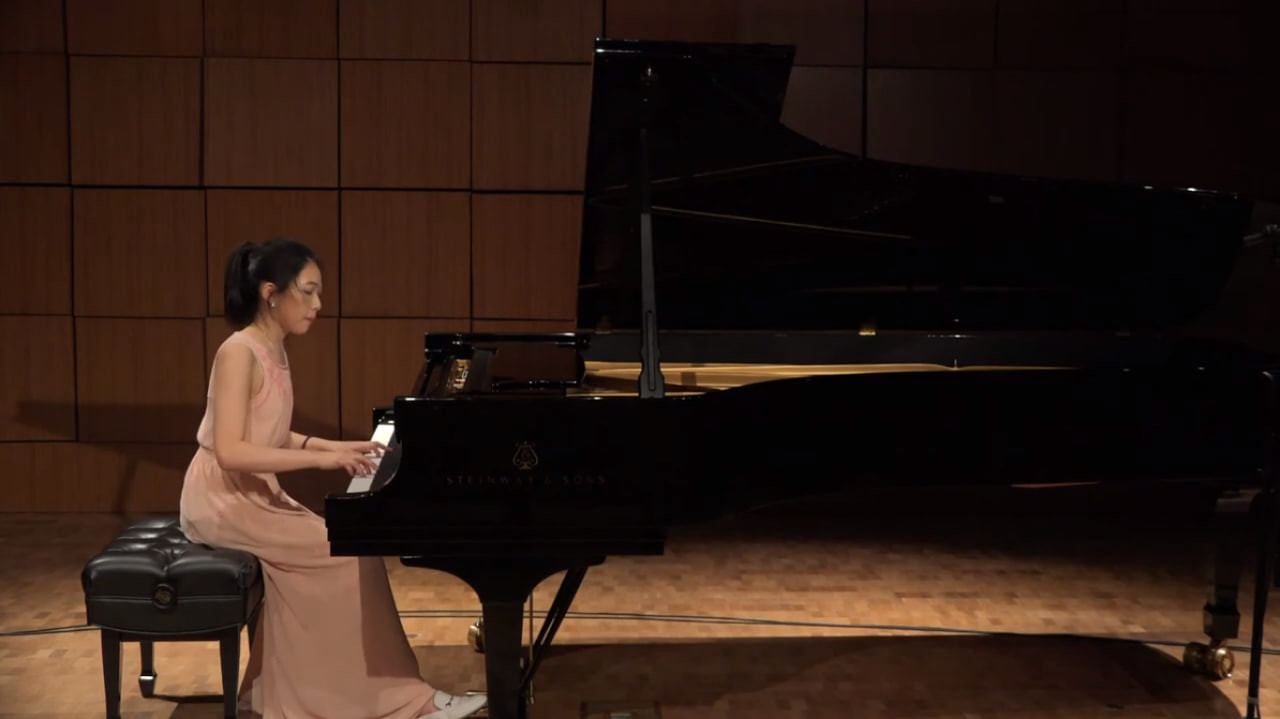Li-Ting Huang: Transcending technique

Li-Ting Huang’s 2019 recital of Liszt’s Ballade No. 2 at Steinway Hall, NYC, established the emerging pianist as a virtuosic force to be reckoned with. Transcending technique, Huang’s innovative interpretation recalled Horowitz’ classic performances at Carnegie Hall and The Metropolitan Opera House, bringing to life the Greek tragedy of Hero and Leander.
Having first studied in Vienna at the Prayner and Franz Schubert Konservatoria, Huang later completed her master’s degree at the Royal Birmingham Conservatoire prior to developing international recognition as a highly sought-after performer both through her work as a soloist and accompanist at the World Peace Choral Festival and Unison Children’s Choir.
Ballade No. 2, composed in 1853 simultaneous with Liszt’s more widely celebrated piano sonata, took as its inspiration the fantasia-like narratives Chopin wove into his earlier concertos. Technically demanding, the piece moves through myriad contrasting atmospheres from its initial, ominous low- rolling murmur (indicating the tempestuous waves Hero must swim through to reach his love) to its tranquil conclusion.

In revisiting Huang’s performance for this article, several themes quickly become apparent. Firstly, the near Wagnerian confidence in her approach to the piece, the product of a visceral connection to the music grounded not merely in an expert theoretical knowledge but a profound emotional understanding. Secondly, and by extension, the pianists flawless technique; not a single note is out of place, her affinity with the ballade expressed through the elegant and economical placement of her hands on the keyboard engendering a remarkable tonal finesse. A complex piece requiring mastery over dynamics, phrasing and articulation, this mesmeric interpretation renders the listener spellbound by its conclusion.
An exemplary advocate for Liszt, Huang’s performance echoes the sentiments that music theorist Derek Watson set out in his comprehensive survey, Liszt: Composers Across Cultures (2000, Oxford University Press):
‘One should seek musical solutions to technical challenges… Innovation is always the servant of expression. Technique is refinement. Even the most advanced technique remains the servant of expression in Liszt’s aesthetic ideal.’
While it is true to say that the second ballade is characterised by the extensive hand-crossing, rapid chromatic scales and interlocking octave passages that are common-place within Liszt’s compositions, what sets the novice player apart from the musician is an innate ability to translate those devices seamlessly into music that touches the soul. This is not lost on Huang; there is something elemental in her playing, musical notes rendered in two-dimensions on the score transform into organic entities imbued with love and with sorrow. Through each passing passage great beauty is realised; the urgency of her playing, emotional depth and sheer power all in harmony with Liszt’s original vision, speaking to the frailties of the human condition.
In the intervening years since Huang’s Steinway Hall performance, the pandemic rendered a void in the landscape of live classical concerts. Notwithstanding that, the pianist was awarded the Silver Medal in the 2023 Euterpe Music Awards Professional category following a series of stellar recitals from 2022 onwards. It seems certain that Huang’s career is destined for greatness.
Author: Dominic Blake | review | Li-Ting Huang: Transcending technique | London, February 2024
